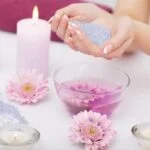Aromatherapy lavender oil uses have been recognized for their therapeutic benefits for centuries, dating back to ancient civilizations. The practice of aromatherapy involves using essential oils to promote physical and psychological well-being. Lavender oil, in particular, has gained widespread popularity for its versatile properties and numerous health benefits. In this article, we will delve into the history and significance of aromatherapy, as well as explore the various uses and advantages of lavender oil in aromatherapy.
Aromatherapy has been used for its healing properties for thousands of years, with different cultures incorporating aromatic plants and their oils into traditional medicine and religious rituals. The term “aromatherapy” was coined in the 20th century to describe the use of essential oils extracted from plants for therapeutic purposes. Lavender oil, derived from the lavender plant, is one of the most widely used essential oils in aromatherapy due to its calming and soothing effects on the body and mind.
This article aims to introduce readers to the benefits and uses of lavender oil in aromatherapy. We will delve into the chemical composition of lavender oil, its impact on the body and mind, as well as provide practical ways to incorporate it into daily life for improved health and wellness.
Whether you are looking to reduce stress, improve sleep, relieve headaches, or simply enhance your mental wellbeing, lavender oil offers a natural solution that has stood the test of time. Follow along as we uncover the science behind aromatherapy and how lavender oil can be a valuable addition to your self-care routine.
The Science Behind Aromatherapy and Lavender Oil
Aromatherapy has been used for centuries as a holistic healing treatment, harnessing the power of essential oils to promote physical and mental wellbeing. One of the most popular and versatile essential oils used in aromatherapy is lavender oil. This section will delve into the science behind aromatherapy and lavender oil, shedding light on how this natural remedy can positively impact the body and mind.
The chemical composition of lavender oil is what makes it so effective in aromatherapy. Lavender oil contains compounds such as linalool and linalyl acetate, which possess calming and sedative properties that can help reduce anxiety and promote relaxation.
When inhaled or applied to the skin, these compounds interact with receptors in the brain, triggering a cascade of physiological responses that contribute to its therapeutic effects. Moreover, studies have shown that lavender oil can modulate neurotransmitter levels in the brain, further supporting its potential to alleviate stress and improve mood.
Aromatherapy works synergistically with lavender oil by utilizing the sense of smell to influence the limbic system, the part of the brain responsible for emotions, memories, and arousal. When inhaling the aroma of lavender oil, olfactory receptors in the nose send signals to the brain, producing neurochemicals that can have a profound impact on mood and cognitive function. This is why aromatherapy is often used as a complementary therapy for managing psychological conditions such as anxiety and depression.
By understanding these mechanisms, individuals can harness the power of aromatherapy with lavender oil to enhance their overall well-being. Here are some ways in which you can use aromatherapy lavender oil uses:
- Add a few drops of lavender oil to a diffuser and inhale its calming aroma
- Mix a few drops of lavender oil with a carrier oil for a relaxing massage
- Incorporate lavender oil into your skincare routine by adding it to your moisturizer or creating DIY face masks
Top 5 Ways to Use Lavender Oil in Aromatherapy
Aromatherapy, the practice of using essential oils to enhance both physical and psychological wellbeing, has been around for centuries. Among the many essential oils used in aromatherapy, lavender oil stands out for its versatility and wide range of benefits. Whether inhaled, applied to the skin, or ingested (in some cases), lavender oil is known for its calming and relaxing effects on the body and mind.
Diffusing Lavender Oil
One of the most popular methods of using lavender oil in aromatherapy is through diffusion. Simply add a few drops of lavender oil to a diffuser filled with water, and let the soothing aroma permeate the air. This method is especially effective for promoting relaxation and reducing stress levels at home.
Lavender Oil Massage
Another way to benefit from the calming properties of lavender oil is through massage. By combining a carrier oil with a few drops of lavender oil, you can create a soothing massage blend that can help alleviate tension and promote muscle relaxation. This method is especially beneficial for those looking to unwind after a long day or ease sore muscles.
Lavender Oil Bath
Adding a few drops of lavender oil to bathwater can create a luxurious and therapeutic experience. The warm water helps to release the soothing aroma of the oil, promoting relaxation and easing both physical and mental tensions. Taking a lavender oil-infused bath before bedtime can also help improve sleep quality.
Using Lavender Oil in Beauty Products
In addition to being used in traditional aromatherapy practices, lavender oil can also be incorporated into skincare and beauty products. Its anti-inflammatory properties make it an ideal ingredient for soothing irritated skin or calming redness. Adding a few drops of lavender oil to facial moisturizers or serums can help promote healthy-looking skin while providing an added sense of relaxation during your skincare routine.
Making DIY Lavender Oil Products
Those interested in incorporating more natural ingredients into their beauty routine may find joy in creating their own skincare products using lavender oil. Simple recipes such as homemade body scrubs, facial mists, or even hair masks can be easily enhanced by including this versatile essential oil.
By embracing these top 5 ways to use lavender oil in aromatherapy, individuals can reap numerous benefits, from improved sleep quality and reduced stress levels to enhanced mental clarity and overall wellbeing. Embracing Aromatherapy and Lavender Oil in Daily Life.
This versatile essential oil can easily become part of anyone’s daily routine with these simple methods-greatly enhancing health outcomes if used consistently.
A new lifestyle integrating Aromatherapy with certain essential oils like Lavender Oil will continue gaining traction as holistic alternatives prosper globally. Furthermore, incorporating these habits consistently will tangibly create lasting positives within our bodies; it intertwines health fitness with sustainable wellness lifestyles today.
Remember always purchased high-quality aromatic agents maintaining stored efficacy (specifically how it smells), various guidelines exist regarding safety so properly dilute are certain advisories alongside potential side effectsclarify its usage lingering evocative mezcal notes primarily distilled botanically unique offerings garnered via reputable sources optimizes remedial infusions within any domicile suitable.
Health and Wellness Benefits of Lavender Oil
Lavender oil is a powerful tool in the practice of aromatherapy, offering numerous health and wellness benefits. One of the most well-known uses of lavender oil is its ability to reduce stress and anxiety.
The soothing aroma of lavender has been shown to lower heart rate and blood pressure, making it an effective way to calm the mind and body. Inhaling the scent of lavender oil can also help improve sleep quality, making it especially beneficial for those who struggle with insomnia or other sleep disorders.
In addition to its stress-relieving properties, lavender oil has been found to have analgesic effects, meaning it can help alleviate pain. This makes it a valuable resource for individuals suffering from headaches or muscle aches. Some studies have even suggested that inhaling lavender oil may help reduce the perception of pain during labor.
Furthermore, research has demonstrated that using lavender oil in aromatherapy can have a positive impact on mood. Its pleasant fragrance can elevate one’s emotional state and promote feelings of relaxation and happiness. Whether used in a diffuser or applied topically in diluted form, the aromatic compounds in lavender oil interact with brain receptors to produce these mood-enhancing effects.
One particularly compelling finding about the health benefits of lavender oil is its potential to act as an anti-inflammatory agent. This makes it useful for treating skin conditions like eczema and acne, as well as soothing minor skin irritations or burns. Applying diluted lavender oil topically can help reduce redness and swelling while promoting healing. With all these incredible properties, it’s no wonder why aromatherapy enthusiasts turn to Lavender Oil for their daily needs.
| Health Benefit | Description |
|---|---|
| Stress Reduction | Inhaling lavender oil lowers heart rate and blood pressure, reducing stress and anxiety. |
| Pain Relief | Lavender oil has analgesic effects, which can help alleviate headaches and muscle aches. |
| Mood Enhancement | The fragrance of lavender promotes relaxation and positive emotions. |
Aromatherapy and Lavender Oil for Beauty and Skincare
Lavender oil has long been used in aromatherapy for its beauty and skincare benefits. Its anti-inflammatory properties make it a popular choice for calming and soothing the skin, making it an excellent addition to any beauty routine. Whether used on its own or as part of a DIY skincare recipe, lavender oil offers a wide range of benefits for the skin.
One of the key benefits of using lavender oil for skincare is its ability to promote healthy, glowing skin. Due to its antimicrobial and antioxidant properties, lavender oil can help to cleanse the skin and reduce inflammation, making it particularly beneficial for those with acne-prone or sensitive skin. When applied topically, it can also help to reduce redness and soothe irritation, making it a versatile ingredient for a variety of skincare concerns.
In addition to its cleansing and calming properties, lavender oil is also known for its ability to promote relaxation and stress relief. Incorporating lavender oil into your skincare routine can provide a sensory experience that helps to calm the mind while nourishing the skin. This dual benefit makes it a valuable addition to any beauty regimen.
| Benefit | Use |
|---|---|
| Promotes healthy, glowing skin | Topical application in DIY serums or lotions |
| Reduces redness and soothes irritation | Spot treatment for blemishes or as an ingredient in face masks |
| Promotes relaxation and stress relief | Incorporation into facial massage or as an aromatherapy component during a skincare routine |
Using Aromatherapy and Lavender Oil for Mental Wellbeing
Impact on Mental Health
Using aromatherapy with lavender oil can have a significant impact on mental wellbeing. The soothing and calming properties of lavender oil make it an effective tool for reducing anxiety, promoting relaxation, and improving mood. When inhaled, the aroma of lavender oil can stimulate the brain’s limbic system, which is responsible for emotions and memories. This interaction can result in reduced stress levels and an overall sense of calmness.
Testimonials and Success Stories
Many individuals have experienced the mental health benefits of using lavender oil in aromatherapy firsthand. From relieving symptoms of anxiety to aiding in better sleep, the positive effects of lavender oil on mental wellbeing are well-documented through personal testimonials and success stories. Hearing about these experiences can provide inspiration and motivation for those looking to incorporate aromatherapy with lavender oil into their own wellness routines.
Enhancing Mental Clarity
In addition to reducing stress and anxiety, lavender oil can also help enhance mental clarity. The calming scent of lavender has been shown to improve concentration and focus, making it a valuable tool for times when cognitive function may need a boost. Whether used during meditation or simply incorporated into a daily self-care routine, the use of lavender oil in aromatherapy can contribute to improved mental clarity and cognitive performance.
Safety Precautions and Tips for Using Lavender Oil in Aromatherapy
Aromatherapy lavender oil uses are abundant, and when used correctly, lavender oil can provide numerous benefits for health and wellbeing. However, it is essential to take certain safety precautions when using this potent essential oil in aromatherapy to avoid any potential adverse effects. Here are some tips for using lavender oil safely and effectively in your aromatherapy practice:
- Always dilute lavender oil: Essential oils are highly concentrated and can cause skin irritation if applied directly. It is crucial to dilute lavender oil with a carrier oil such as jojoba, coconut, or almond oil before applying it to the skin. The recommended dilution ratio is 2-3 drops of lavender oil per teaspoon of carrier oil.
- Do a patch test: Before using lavender oil on a larger area of the skin, perform a patch test to check for any allergic reactions or sensitivities. Apply a small amount of diluted lavender oil to the inner forearm and wait 24 hours to observe any redness, itching, or irritation.
- Use caution during pregnancy: While lavender oil is generally considered safe for use during pregnancy, it’s always best to consult with a healthcare professional before incorporating it into your aromatherapy routine. Some experts recommend avoiding essential oils altogether during the first trimester.
- Store properly: To maintain the potency and quality of lavender oil, store it in a cool, dark place away from direct sunlight and heat. Make sure the bottle is tightly sealed to prevent oxidation and evaporation.
By following these safety precautions and tips for using lavender oil in aromatherapy, you can enjoy its therapeutic benefits while minimizing any potential risks. Additionally, always choose high-quality, pure lavender essential oil from reputable sources to ensure that you are getting the most out of its aromatic and healing properties.
Conclusion
In conclusion, the use of lavender oil in aromatherapy can significantly enhance overall health and wellbeing. With its myriad benefits for physical, mental, and emotional wellness, lavender oil has become a staple in the practice of aromatherapy. From its soothing properties to its ability to promote relaxation and mental clarity, this essential oil has proven to be a versatile and valuable tool for self-care.
As demonstrated throughout this article, the science behind aromatherapy and lavender oil provides a sound basis for its effectiveness. The chemical composition of lavender oil, coupled with the concept of aromatherapy, creates a powerful synergy that can positively impact both the body and mind. Whether used for relaxation, skincare, or mental wellbeing, lavender oil offers a natural and holistic approach to improving one’s quality of life.
Incorporating aromatherapy and lavender oil into daily life can be easily accomplished through various methods such as diffusion, massage, or DIY skincare products. It is important to ensure the safety precautions and guidelines are followed when using lavender oil to maximize its benefits while minimizing any potential side effects. Ultimately, embracing aromatherapy and lavender oil in daily routines can lead to improved health and wellbeing for individuals seeking natural remedies for stress relief, skincare enhancement, and mental clarity.
Frequently Asked Questions
What Is the Use of Lavender Essential Oil?
Lavender essential oil is commonly used for its calming and relaxing properties. It is often used in aromatherapy to promote a sense of wellbeing, reduce stress and anxiety, and help with sleep.
What Can I Do With Lavender Essential Oil?
There are a variety of ways to use lavender essential oil. It can be diffused in the air, added to a bath for relaxation, or mixed with a carrier oil for a soothing massage. Some people also use it in DIY household cleaners or as a natural bug repellent.
When Not to Use Lavender Essential Oil?
While lavender essential oil is generally safe for most people, there are some instances where it should be avoided. Pregnant or breastfeeding women should consult their doctor before using it, and it should not be used on young infants.
People with allergies to lavender should also steer clear of this essential oil. Additionally, individuals taking sedatives or CNS depressants should avoid using lavender essential oil without consulting a healthcare professional.

Are you looking for a natural way to improve your health and wellbeing?
If so, aromatherapy may be the answer for you.





